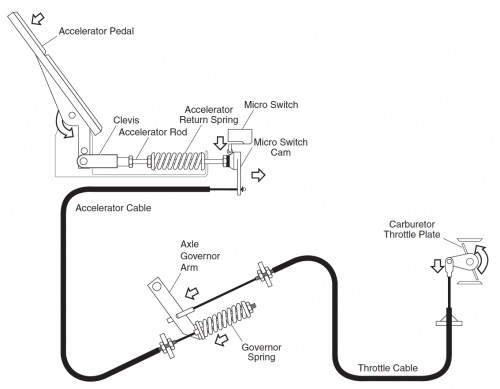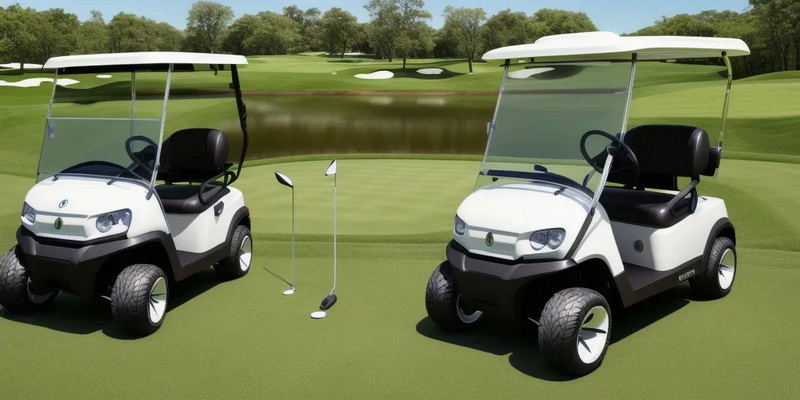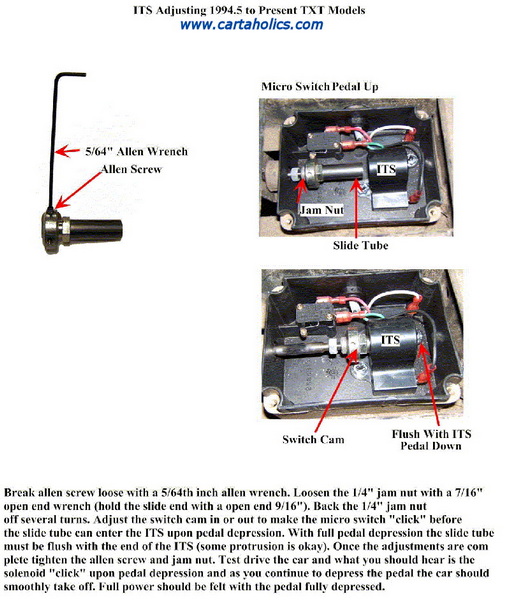Content Menu
● The Basics of Electric Golf Cart Throttles
● Types of Throttle Systems
>> Potentiometer-based Throttles
>> Inductive Throttle Sensor (ITS)
>> Motor Controller Output Regulator (MCOR)
● How the Throttle System Works
● Components of the Throttle System
>> Accelerator Pedal
>> Throttle Sensor
>> Wiring Harness
>> Controller
● The Role of the Controller
● Advanced Features of Modern Throttle Systems
>> Speed Limiting
>> Programmable Acceleration Curves
>> Fault Detection
● Maintenance and Troubleshooting
● The Future of Electric Golf Cart Throttles
● Environmental Impact
● Safety Considerations
● Conclusion
● FAQ
>> 1. How often should I have my golf cart's throttle system inspected?
>> 2. Can I upgrade my golf cart's throttle system?
>> 3. How does temperature affect the throttle system?
>> 4. What's the difference between a golf cart throttle and a car's gas pedal?
>> 5. Can a faulty throttle system drain my golf cart's battery?
Electric golf carts have become increasingly popular for their quiet operation, eco-friendliness, and low maintenance requirements. At the heart of these vehicles lies a crucial component: the throttle. This article will delve into the intricate workings of an electric golf cart throttle, exploring its components, functionality, and importance in the overall operation of the vehicle.

The Basics of Electric Golf Cart Throttles
The throttle in an electric golf cart is responsible for controlling the speed of the vehicle. It acts as the primary interface between the driver and the cart's propulsion system, translating the driver's input into electrical signals that regulate the motor's power output.
Types of Throttle Systems
There are several types of throttle systems used in electric golf carts, each with its own unique characteristics:
Potentiometer-based Throttles
Potentiometer-based throttles are one of the most common types found in electric golf carts. They consist of a variable resistor that changes its resistance as the accelerator pedal is pressed.
Inductive Throttle Sensor (ITS)
The Inductive Throttle Sensor (ITS) is a more advanced system used in many modern golf carts. It uses electromagnetic principles to detect pedal position and send signals to the controller.
Motor Controller Output Regulator (MCOR)
The MCOR system, used in Club Car models, is another sophisticated throttle mechanism that provides precise control over the cart's speed.
How the Throttle System Works
Regardless of the specific type, the basic principle of operation for electric golf cart throttles remains similar:
1. Driver Input: The process begins when the driver presses the accelerator pedal.
2. Signal Generation: The throttle mechanism translates this physical movement into an electrical signal.
3. Controller Communication: This signal is sent to the golf cart's controller.
4. Power Regulation: The controller interprets the signal and adjusts the power sent to the motor accordingly.
5. Motor Response: The electric motor receives the regulated power and adjusts its speed, moving the golf cart faster or slower.

Components of the Throttle System
To understand the throttle system better, let's examine its key components:
Accelerator Pedal
The accelerator pedal is the physical interface that the driver interacts with. It's typically spring-loaded to return to its resting position when released.
Throttle Sensor
The throttle sensor is the heart of the system. In potentiometer-based systems, it's a variable resistor. In ITS systems, it's an electromagnetic sensor. This component translates pedal position into an electrical signal.
Wiring Harness
The wiring harness connects the throttle sensor to the controller, carrying the electrical signals that represent the driver's input.
Controller
The controller receives signals from the throttle sensor and uses this information to regulate the power sent to the motor. It's the brain of the electric golf cart's propulsion system.
The Role of the Controller
The controller plays a crucial role in the operation of an electric golf cart's throttle system. It interprets the signals from the throttle sensor and determines how much power to send to the motor. The controller also manages other aspects of the cart's operation, such as:
- Regulating acceleration to prevent sudden jerks
- Implementing regenerative braking
- Managing battery power consumption
- Protecting the system from overload
Advanced Features of Modern Throttle Systems
Modern electric golf cart throttle systems often come with advanced features that enhance performance and safety:
Speed Limiting
Many golf carts have built-in speed limiters that prevent the cart from exceeding a certain speed, regardless of how far the accelerator is pressed.
Programmable Acceleration Curves
Some advanced controllers allow for programmable acceleration curves, allowing the cart's response to be tailored to different driving conditions or preferences.
Fault Detection
Modern throttle systems often include fault detection capabilities, alerting the driver to potential issues before they become serious problems.

Maintenance and Troubleshooting
Proper maintenance of the throttle system is crucial for the smooth operation of an electric golf cart. Here are some tips:
1. Regularly inspect the accelerator pedal and throttle mechanism for signs of wear or damage.
2. Keep the throttle system clean and free from debris.
3. Check and tighten electrical connections periodically.
4. If you notice any issues with acceleration or speed control, have the system inspected by a professional.
Common throttle-related issues include:
- Inconsistent acceleration
- Lack of power
- Sudden loss of speed
- Failure to reach top speed
If you encounter any of these problems, it's best to consult with a qualified technician.
The Future of Electric Golf Cart Throttles
As technology continues to advance, we can expect to see further improvements in electric golf cart throttle systems. Some potential developments include:
- Integration with digital displays for more precise speed control
- Wireless throttle systems for reduced complexity
- AI-assisted throttle control for optimal power management
- Integration with GPS systems for location-based speed control
Environmental Impact
The throttle system plays a significant role in the energy efficiency of electric golf carts. By providing precise control over the motor's power output, a well-designed throttle system can help maximize battery life and reduce overall energy consumption. This contributes to the environmental benefits of electric golf carts, which include:
- Zero direct emissions
- Lower noise pollution
- Reduced dependence on fossil fuels
As we move towards a more sustainable future, the role of efficient electric vehicles like golf carts becomes increasingly important.
Safety Considerations
The throttle system is not just about performance; it's also a crucial safety feature. A properly functioning throttle ensures that the cart responds predictably to driver input, reducing the risk of accidents. Some safety features related to the throttle system include:
- Automatic return to idle when the pedal is released
- Gradual acceleration to prevent sudden jerks
- Integration with the braking system for smooth deceleration
It's important for drivers to familiarize themselves with their cart's throttle response to ensure safe operation.
Conclusion
The throttle system is a vital component of electric golf carts, translating driver input into vehicle motion. From simple potentiometer-based systems to advanced electronic controls, throttle technology continues to evolve, offering improved performance, efficiency, and safety.
Understanding how your golf cart's throttle works can help you operate the vehicle more effectively and troubleshoot basic issues. As we look to the future, we can expect to see even more sophisticated throttle systems that enhance the driving experience while minimizing environmental impact.
Whether you're a golf enthusiast, a maintenance professional, or simply curious about how things work, the world of electric golf cart throttles offers a fascinating glimpse into the intersection of mechanical and electrical engineering. As these systems continue to advance, they'll play an increasingly important role in shaping the future of sustainable transportation.

FAQ
1. How often should I have my golf cart's throttle system inspected?
It's recommended to have your golf cart's throttle system inspected at least once a year or every 1,000 miles, whichever comes first. However, if you notice any issues with acceleration or speed control, it's best to have it checked immediately.
2. Can I upgrade my golf cart's throttle system?
Yes, in many cases it's possible to upgrade your golf cart's throttle system. However, it's important to ensure that any upgrades are compatible with your cart's make and model. It's best to consult with a professional before making any modifications.
3. How does temperature affect the throttle system?
Extreme temperatures can affect the performance of your golf cart's throttle system. Cold weather can make the system less responsive, while hot weather can cause components to expand and potentially malfunction. It's important to store your cart in a temperature-controlled environment when possible.
4. What's the difference between a golf cart throttle and a car's gas pedal?
While both control the vehicle's speed, a golf cart throttle typically controls an electric motor, while a car's gas pedal controls the fuel input to an internal combustion engine. Golf cart throttles are usually more sensitive and provide more immediate response compared to car gas pedals.
5. Can a faulty throttle system drain my golf cart's battery?
Yes, a malfunctioning throttle system can potentially drain your golf cart's battery. If the throttle is sending incorrect signals to the controller, it might cause the motor to draw more power than necessary, leading to faster battery drain. If you notice your battery life decreasing unexpectedly, it's worth having your throttle system checked.











































